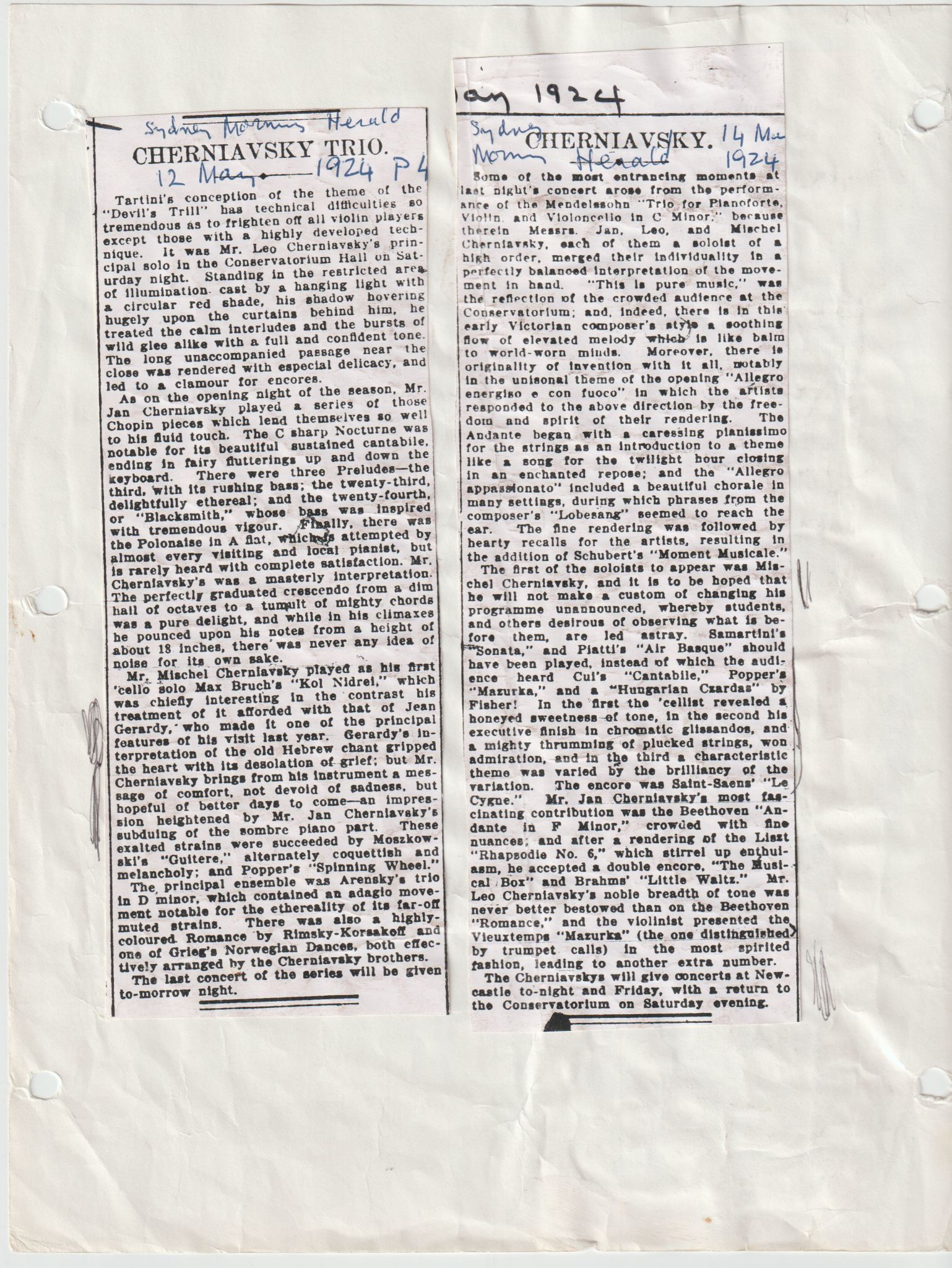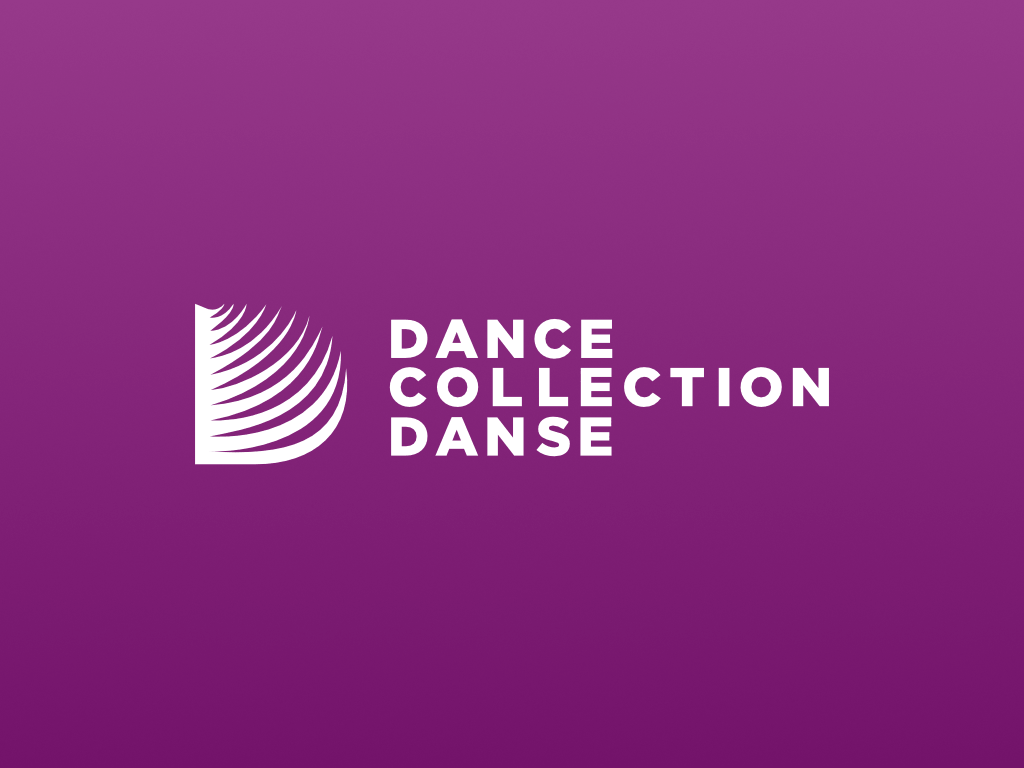Felix Cherniavsky - Cherniavsky Trio
Added 18th Mar 2022 by Beth Dobson (Archives and Programming Assistant, DCD) / Last update 18th Mar 2022

Maud Allan 757a 51 2008-1-39.jpg
(No description added)
Felix Cherniavsky - Cherniavsky Trio

The description of this Item
The collections that this item appears in.
Tag descriptions added by humans
Description of the objects in this Item
DCD's accession number for this Item. It is the unique identifier.
Auto-generated content
Tag descriptions added automatically
text
newspaper
black and white
line drawing
monochrome photography
Auto-generated identification of objects in this Item
book
An autogenerated description of this Item
Auto-generated number of faces in the Item